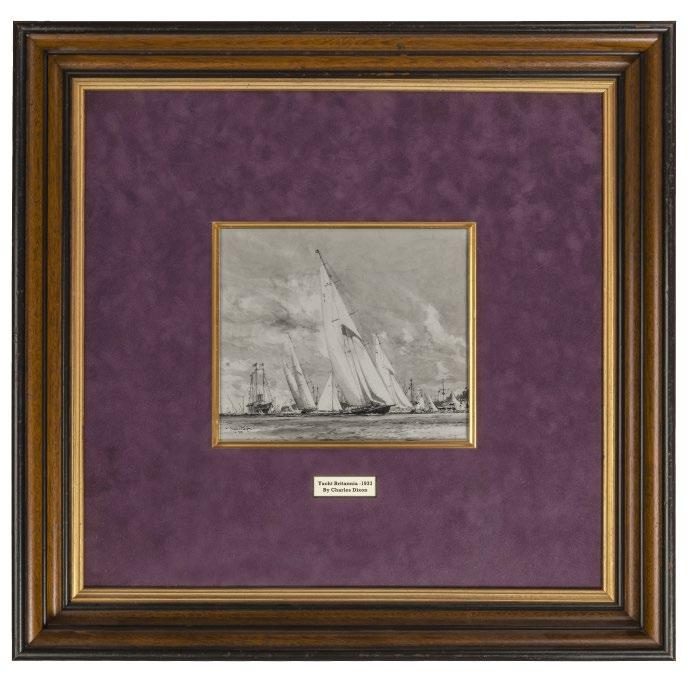44
The Admiral Duckworth silver
Length: 17in (43cm) Width: 12in (31in) Weight: 57 Troy ounces
This large oval silver dish has a gadrooned border engraved ‘Presented in the Year 1804 by the Merchants of Kingston, Jamaica, to thee Admiral Sir John Thomas Duckworth K.B. as a Token of their high Respect and Regard for the eminent SERVICES rendered by him to the TRADE of the Island, during his COMMAND on that Station’. Decorated opposite with the arms of Duckworth, within a garter and motto of the Order of the Bath Tria Juncta in Uno, the arms supported by a figure of Orion (the hunter) and a seaman, above the motto Disciplina Fide Perserverantia (discipline, faith, perseverance). Maker’s mark of W.S. for William Stroud, London 1805-06. Purchased with a gift of money from the merchants of Jamaica at the end of Duckworth’s posting as Commander-in-Chief at Kingston between 1803-1805. Jamaica’s wealth relied heavily on the Royal Navy for protection. During Duckworth’s tenure of command, he captured numerous enemy vessels, blockaded San Domingo and took 5,512 French troops prisoner. For these services he was presented with a gold mounted sword and a grant for the purchase of plate in London. His purchase included a silver tea kettle which, identically inscribed, dated and hallmarked, is now in the collection of the National Maritime Museum in Greenwich.
John Thomas Duckworth (1748-1820) witnessed two fleet actions (Lagos and Quiberon Bay) before his twelfth birthday. He passed for lieutenant in 1766 and was thrice tried by court martial during his career. Returning from a cruise in Diamond, 32 guns, with her guns loaded, the ship was required to fire a salute. Duckworth had the shot removed from the guns, counted it and found the total correct. But one gun had been double shotted, and the remaining round killed five men in a nearby ship. The ensuing court martial acquitted Duckworth of neglect of duty and commended his counting the shot, but this did not satisfy Lord Howe, who reconvened the court to try Duckworth for murder, of which he was also acquitted. Howe intended the second trial to pre-empt any action in a civil court. Later, on the termination of his Jamaica command in 1805, he brought Acasta, 40 guns, into Plymouth with a prodigious cargo of merchandise, including mahogany for improvements to his home Wear House at Topsham, Devon. This led to his third court martial for the supposed contravention of at least two of the articles of war, but the court accepted his assurance that his imports were for personal use.



















































